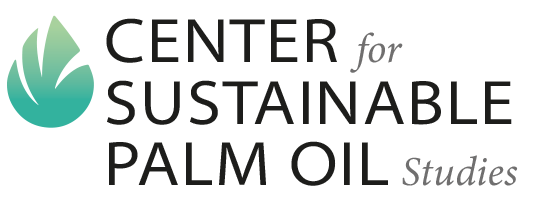
Someone reached out to me recently seeking help with an interview series focusing on individuals in corporations “who are making system change happen,” as she described it.
My first thought: Has anyone in any corporation actually changed a system?
My second: What does system change actually mean, anyway?
It’s a can of worms that I recently pried open, unleashing a squirming jumble of concepts, opinions and perspectives — some clear and concise, others anything but, at least to lay readers like me.
This was no academic exercise. If business truly is to lead the transition to a more just and sustainable world, it will require more than the incremental tweaks common in the sustainability realm. It will require fundamentally rethinking a broad range of assumptions: what we value; how we deploy capital; the rules set by governments and markets; the people and interests we prioritize; the kind of future we want; and more. It will require thinking big and making bold moves.
It will, in effect, require transforming things at the systems level: system change.Leading the transition to a more just and sustainable world will require fundamentally rethinking a broad range of assumptions.
This was hardly the first time I’d heard utterances about system change. The term has become de rigueur among climate activists. Three years ago, at COP24 in Poland, young activist Greta Thunberg said, “If solutions within this system are so difficult to find, then maybe we should change the system itself.”
Since then, “system change, not climate change” has been a rallying cry within the global climate justice movement. In response to last week’s report by the Intergovernmental Panel on Climate Change, a group of U.K. architects declared that “we need rapid system change” to achieve “a world in which humanity can flourish within planetary boundaries is still possible and within reach.”
But what, exactly, does system change mean? Are there examples of systems that have been changed, notably by companies and individuals therein? If so, how did it happen? And what will it take to point our current operating systems toward “a world in which humanity can flourish within planetary boundaries”?
I’m not going to attempt to answer all those questions, even if I had the intellectual firepower to do so, let alone in the mere 2,000 or so words that follow. But I will share a bit about my journey, talking to people far smarter than I about these things, in the hopes that it might shorten your path to understanding some of these concepts. I can assure you that I will scarcely do justice to the countless websites, academic papers and speeches covering this topic. I’m hoping that others will weigh in to fill in the gaps (or correct my misunderstandings).
The basics
As I said, I approached this through the lens of business. What role can companies play in changing systems? We think of businesses, individually and collectively, as all-powerful, able to direct their substantial resources almost at whim to serve their and their stakeholders’ interests. And, of course, we want them to do so to support the common good — our prosperity, security and sustainability. So, they should just do that, right?
Spoiler alert: It’s not that simple.
Let’s start with some basic definitions. Here’s Gil Friend, CEO of the consultancy Natural Logic: “System change is a current term of art trying to get at the challenge of how we shift the operating environment, the norms and the coordination mechanisms of complex systems and organizations out of a recognition that just trying to fix a piece of a complex problem doesn’t get us to where we want to get.”
That’s one important concept: that fixing one part of a system won’t likely change the entire system.
Or Michael Kleeman, a senior research fellow at the University of California, San Diego: “Most all human activity takes place with multiple players doing multiple things that are interlinked, and you need them all to work well for the desired outcome to occur. That mess is basically a system,” explained Kleeman, who studies and works to effect systemic change. He acknowledged that he’s been “struggling with this challenge now for 30 years.
He continued: “If you tinker with one part of it and improve it, you don’t necessarily make the overall system work better. So, system change is, first of all, understanding as well as you can the overall system that you’re trying to impact and then attempting to move it towards some kind of desired outcome based upon the set of outcome metrics.”
Understanding the entire system. Determining an outcome. Moving it forward. Establishing metrics. Four keys to remember.
A good start, but it begs a number of questions. First among them, as Kleeman noted: Which system(s) are we looking to change, and in what way?
Stocks, flows and loops
The field of system change can involve a dizzying vocabulary of terms and concepts: stocks, flows, buffers, leverage points, root causes, feedback loops;,discount rates and more. There are different approaches to system change, I learned, from changing the rules of the game, to shifting mental models, to creating a new paradigm — each one an increasingly heavier lift.
Suffice to say, none of this is an easy lift. While understanding a system in which you operate may seem relatively straightforward — after all, it’s part of your daily existence — much like the proverbial goldfish that doesn’t know it’s immersed in water, it’s not always easy to appreciate what’s all around us. And once you understand a system, determining how to begin to change it can quickly overwhelm one’s capacity to comprehend, let alone act.Once you understand a system, determining how to change it can quickly overwhelm one’s capacity to comprehend, let alone act.
One example: I asked Kleeman whether working to change economic models that reward consumption might represent a system worth changing.
No, he said, “Those are system drivers. Consumption is the root of all of this. It’s not the system.”
That was a tad perplexing. It suggested that to change a system first required understanding whether something was actually a system or merely a symptom or component of that system. Is campaign financing a system that needs changing, or is it merely an outcome of a larger system? What about linear versus circular models of production? Factory farming? Racism?
I dialed up Sally Uren, CEO of Forum for the Future, which has created a School of System Change that offers a curriculum aimed at helping educate would-be systemic changemakers.
“System change happens when the goals of a system alter, when new patterns of operating emerge, and when new relationships and connections are formed,” she said. “This is what is happening now in the energy system, shifting in front of our eyes, from a fossil-fueled system to one powered by renewables.”
New patterns of operating. New relationships and connections. I was getting that — until she added: “System change is both a process and an outcome.”
Sigh.
Trying to understand system change can be tricky and elusive, even subject to interpretation. That, no doubt, has led to a lot of well-intentioned people calling for system change but then advocating for mere tweaks to individual components. As Michael Kleeman pointed out, in some such cases, the cure can be worse than the disease.
“There’s a chronic history of what I refer to as local optimization and global sub-optimization,” said Kleeman. “In other words, I make this piece work really well, but then it screws up everything on either side of it and downstream.”
Palm oil and burgers
But systems can change, albeit slowly and incrementally. In 2010, around 350 members of the global beef industry — ranchers, feeders, packers, processors, wholesalers, retailers, restaurateurs, government officials and activists — convened in Denver to determine if there was any common ground on which to define “sustainable beef.” The group, corralled by McDonald’s, the World Wildlife Fund and a few other key players, led to formation of the Global Roundtable for Sustainable Beef, a group seeking to transform how beef is produced.
A decade later, in its most recent annual report, the group offered updates on its progress, from chapters in Australia, Europe and the Americas. Each reported plodding progress toward establishing and implementing regional goals toward “continuous improvement in sustainability of the global beef value chain.”
Is the roundtable changing the system? Perhaps, in the long haul. Progress, as the group has demonstrated, sometimes digs in its heels
Another example might be palm oil, the sourcing of which has had devastating impacts on tropical deforestation and habitat destruction. In the past, a non-systemic solution would have been to simply ban the practice of cutting down forests for palm oil. A systemic approach would be to understand that banning deforestation would remove the livelihood of countless farmers and to find a different mode — one that involved governments, smallholder farmer associations, palm oil traders and the many, many brands that use palm oil. And to develop metrics and monitoring to assess progress.
That’s essentially the model of Global Forest Watch, run by the World Resources Institute and more than 60 other organizations. It can monitor continuously where trees are falling, down to a tenth of a hectare, throughout the world. And because we know the 1,000 or so palm oil mills in Southeast Asia and where each sources palm oil, one can determine with significant probability which mills are playing by the rules. And brands can make buying decisions based on that knowledge.
It is, slowly but surely, changing the system.
Power and clout
Which gets us back to the role of companies, and the people in them, to effect change at scale.
Companies, for all their financial power and market clout, are but singular players in most systems. And, much like individual professionals, their ability to make change can be limited, at least without support from other companies, governments and advocacy groups, not to mention persistence and patience. And sometimes, progress toward wholesale change can seem underwhelming.Do these represent system change or merely companies’ laudable efforts to do their part to address the issue — theirs and the planet’s?
I spoke to one large U.S. company that set an audacious goal to “end systemic racism.” In hearing what it was actually doing toward that goal, I was struck that a lot of the activities seemed less than revolutionary: aligning its own internal practices and external relationships, collaborating with other companies to address common challenges, creating metrics to assess progress.
Do all these actions represent system change or merely companies’ laudable efforts to do their part to address the issue?
At some level, I’m not sure it matters. Clearly, no one company or organization, however well-intentioned and resourced, can effect change at that scale. And while the above efforts may not be exactly what activists mean when they chant, “System change not climate change,” they all seemed aimed at nudging old models toward new ones.
Forum for the Future’s Sally Uren pointed to other examples of companies she believes are pursuing systemic approaches: Danish energy company Ørsted’s efforts to decarbonize the energy system and drive down the cost of renewables; how Ingka Group, parent of IKEA, supports excluded communities and weaves social entrepreneurship throughout its business; Kimberly Clark’s partnership with the Gates Foundation to promote access to sanitation; General Mills’ efforts to redirect food systems toward regenerative agriculture.
In many of these cases, system change may be in the eye of the beholder.
Changing mindsets
Donella Meadows, the renowned environmental scientist, published a seminal article, “Leverage Points: Places to Intervene in a System,” in 1999 that described the most effective types of interventions in changing a system. It is still regarded as one of the best writings on the topic. Meadows described 12 leverage points, from “regulating negative feedback loops” to addressing “the mindset or paradigm out of which the system — its goals, power structure, rules, its culture — arises.”
That suggests that changing a system can be done in multiple ways and at multiple levels. But at the highest level, it seems less about upending politics and economic systems than our own ways of thinking.
“The deepest lever for systemic change is our mindset,” Sally Uren told me. “I see too many people wanting to drive systemic change but who are not willing to change their own view of the world, and who are not willing to change what they’re doing.”
Gil Friend agreed: “There’s this other system called ‘us’ and how we live in the world, and what we believe and what we take as normal behavior.”
That, as much as anything, seems to be the takeaway: You can’t solve the planet’s biggest problems without changing the system. But you can’t change the system without changing minds. And, along the way, offering an inspiring vision of what’s possible if you do.
But that takeaway feels like a simplistic copout. I’ll admit to coming away from this exercise with only a slightly better understanding of what it takes to change a system. Clarity is elusive. It turns out, for example, that we could be in the middle of a system that’s changing and not really know it. Or we may think we are changing a system but actually only tinkering with a constituent part.
We need to make system change more understandable and actionable to those of us not schooled in systems ecology, organizational dynamics and chaos theory. We need a clearer understanding of how organizations — companies in particular — can play a role in transforming complex systems. We need to make these concepts simpler and more accessible to those ready, willing and able to meet the moment.
What examples of system change have you seen? Can you point to companies or consortia that have tried and succeeded — or tried and failed — to change a system? What organizational strategies have shown promise? What are the systems conditions needed for success? What resources, especially those aimed at non-experts, would you recommend?
I welcome your thoughts, ideas and feedback.
I invite you to follow me on Twitter, subscribe to my Monday morning newsletter, GreenBuzz, from which this was adapted, and listen to GreenBiz 350, my weekly podcast, co-hosted with Heather Clancy.
By Joel Makower
Original Link: https://www.greenbiz.com/article/what-does-system-change-mean-anyway


